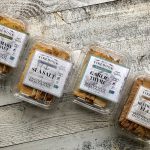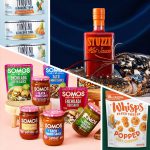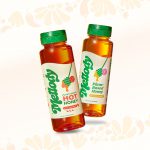FDA Warns Kind on Use of “Healthy”
Food and beverage entrepreneurs may need to be cautious when it comes to putting the word “healthy” on their labels, especially if they are working with high fat ingredients such as nuts.
Last month, the U.S. Food and Drug Administration (FDA) issued a warning letter to Kind LLC, the maker of Kind snack bars, stating that at least four of its products are in violation of labeling regulations as it relates to use of the word “healthy” in packaging and marketing.

But what does “healthy” mean to the FDA and what are the requirements for labeling a product with the word?
According to FDA guidelines, the following criteria needs to be met for snack foods to be marketed as “healthy”:
- Total Fat: “Low fat” or three grams or less of fat per serving
- Saturated Fat: Less than two grams per serving
- Sodium: Less than or equal to 480 milligrams (roughly 0.08 teaspoons of table salt) per serving
- Cholesterol: Claims allowed when food contains two grams or less of saturated fat per serving
- Beneficial Nutrients: Contains at least 10 percent of the daily recommended values for vitamins A, C, calcium, iron, protein, or fiber. Exceptions include raw and frozen fruits and vegetables, along with enriched cereal grains.
- Fortification: Needs to be in accordance with 21 CFR 104.20, which basically spells out the criteria for what is the rational addition of nutrients to food. For example, fortifications may be permitted in situations where additions restore nutrient to levels prior to processing or storage or if the additions correct a dietary insufficiency recognized by the scientific community.
The FDA says Kind’s Almond and Apricot, Almond and Coconut, Peanut Butter Dark Chocolate + Protein, and Dark Chocolate Cherry Cashew snack bars have too much saturated fat in them to be labeled as “healthy.”
In a statement posted on its website, Kind acknowledged that “some of our products do not follow the FDA regulatory standard for using the word ‘healthy’ on a label,” and noted that “nuts, key ingredients in many of our snacks… contain nutritious fats that exceed the amount allowed under the FDA’s standard.”
However, the company pointed to increased research about consumption of nuts as contributing to a healthy diet.
“There is an overwhelming body of scientific evidence supporting that nuts are wholesome, nutritious and healthful,” Kind said.
Supporting Kind’s position are recent nutrition guideline recommendations issued by the 2015 Dietary Guidelines Advisory Committee (DGAC), which surprised many by not including limits on fat as a proportion of caloric intake. Instead, experts from the committee recommended keeping consumption of saturated fats to 10 percent of total calories (which is in accordance with the 2010 guidelines) and no longer suggested a limit on healthy, unsaturated fats like those found in nuts.
In its statement, Kind said that it was taking corrective measures to address the violations. The FDA has the option of removing Kind snack bars from grocery shelves if it does not adjust its labels.
Sales of Kind products have tripled over the last two years, reaching 458 million units in 2014, according to Daniel Lubetzky, the company’s chief executive officer. The products are sold in 150,000 retail stores across the U.S.












